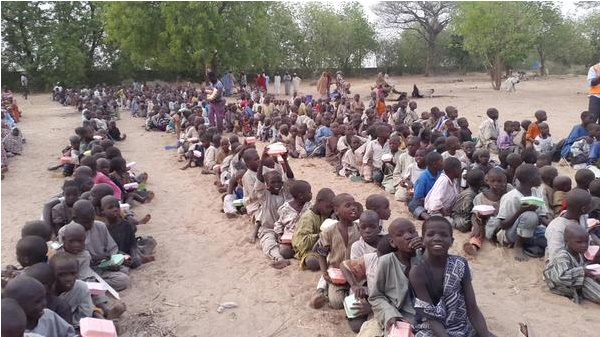The humanitarian crisis in Africa will persist if the affected countries don’t take steps to prevent a reocurrence, warns Fatoumata Nafo-Traoré, regional director for Africa, International Federation of Red Cross and Red Crescent Societies (IFRC).
The crisis in the region has put more than 18 million people at risk in nine countries – Djibouti, Eritrea, Ethiopia, Kenya, Somalia, South Sudan, Sudan, Uganda and Nigeria.
Nafo-Traoré gave this warning at the end of a continental conference of Red Cross and Red Crescent leaders in Abidjan. The three-day meeting recommended a number of actions.
The three-day meeting recommended a number of actions.
Advertisement
“As long as we have conflicts and do not take strong measures to mitigate the effects of climate change, food insecurity will be with us. As we respond to the risk of imminent mass starvation in Africa, we also need to invest in community-level capacities and systems, so that local communities are prepared for any future shocks.”
Corroborating her statement, Abbas Gullet, IFRC’s vice president, said not enough has been done to prevent future reoccurrence of drought and hunger in Africa.
“We’ve seen drought and hunger before: in Somalia in 2011 and 2012, in Niger in 2005, in Ethiopia in the 1980s. Not enough was done to prevent those crises from happening, and not enough is being done to prevent a similar disaster from happening in the future.
Advertisement
“How many people will die this year? How many will die in future years if we don’t build the resilience of communities alongside our provision of emergency aid? We cannot keep saying ‘never again’ unless we are prepared to change the way we respond.
“We need to take advantage of modern technologies in our response to current humanitarian challenges. Mobile applications and social media should be used to raise awareness on climate change and to share early warning information about disasters. We also need to improve data collection, through technology and capacity building at community level.”
Other recommendations made at the conference includes strengthening domestic resource mobilisation, increasing country level policy dialogue with governments, fostering increased community ownership of programmes, and developing innovation centres in communities while recognising innovative community-level initiatives on disaster risks reduction.
The meeting encouraged governments, donors and humanitarian partners to prioritise and invest in interventions that will break the destructive cycle of hunger — by strengthening communities’ capacities to better prepare for and respond to disasters and food insecurity, among other crises.
Advertisement







